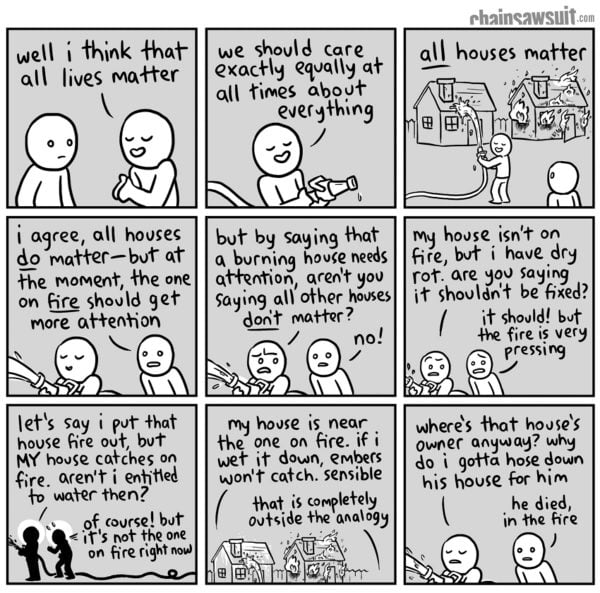
As protests erupt across the United States following the death-in-custody of black man, George Floyd, the Black Lives Matter movement has surged.
The rallying cry has been plastered across protest signs and echoed online by people drawing attention to racial injustice.
But many people showing their support for the movement have been met with the same response: “All Lives Matter”. It’s there in social media comments, and in speeches by politicians and media commentators.
People who use the phrase seem to have good intentions, most of the time; they seem to be advocating for equality. But even if we assume good intent, that particular argument shows that there’s room for better understanding about what the Black Lives Matter movement actually represents.
And that’s a discussion white people desperately need to be having.
How Trump is fanning the flames of discontent in the US. Post continues after podcast.
If we’re actually interested in equality and in being allies to people of colour, we have to do our own heavy lifting. It’s on us to seek out as many black perspectives and voices and stories as we can. We must read wider, think deeper, learn what ‘Black Lives Matter’ truly means, and interrogate what message it sends when privileged communities respond, ‘what about us?’
Chances are you will come across someone arguing the ‘All Lives Matter’ point in the coming weeks, so let’s take a look at how to have a productive conversation with them.
But first…


Top Comments
Thank you for joining the conversation. We are now disabling comments for this article.